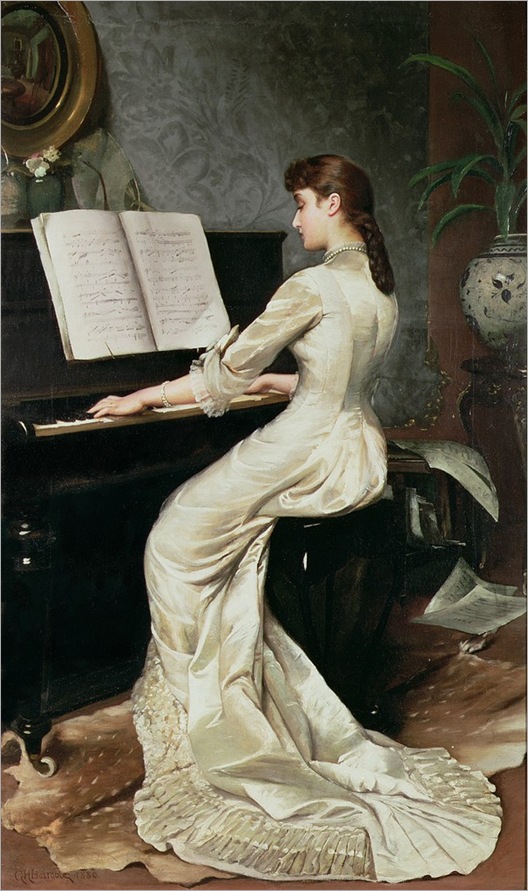A Night Out
 Saturday, May 27, 2017 at 13:43
Saturday, May 27, 2017 at 13:43  What constitutes our evening pleasures very much depends, one may conclude, on how we whittle away the daytime. I have always been partial to reading, writing, and cinema; but not always exclusively partial. That is to say, when I was younger and untethered to a wonderful life of responsibilities, I felt the urge – as all young people do regardless of stock or situation – to drift into the world and let the world drift into me. This drifting may assume the form of walking about a modern metropolis in search of whatever that city may offer its wanderers. It may also involve more organized pursuits, to wit, meeting and carousing with those ephemeral beings we call friends. Now I am all for friends. But true friends are very few and stand like cracked, sturdy buildings throughout our sunsets in the same reliable position, waiting simply to be remembered and reapproached. As life takes its course much of our interaction with these persons, whom we have chosen and who have chosen us, lives off the fumes of a glorious common past. Gone are the days of plenty, or perhaps, the days of prophecy. Which brings us to a work about an old theme from this collection.
What constitutes our evening pleasures very much depends, one may conclude, on how we whittle away the daytime. I have always been partial to reading, writing, and cinema; but not always exclusively partial. That is to say, when I was younger and untethered to a wonderful life of responsibilities, I felt the urge – as all young people do regardless of stock or situation – to drift into the world and let the world drift into me. This drifting may assume the form of walking about a modern metropolis in search of whatever that city may offer its wanderers. It may also involve more organized pursuits, to wit, meeting and carousing with those ephemeral beings we call friends. Now I am all for friends. But true friends are very few and stand like cracked, sturdy buildings throughout our sunsets in the same reliable position, waiting simply to be remembered and reapproached. As life takes its course much of our interaction with these persons, whom we have chosen and who have chosen us, lives off the fumes of a glorious common past. Gone are the days of plenty, or perhaps, the days of prophecy. Which brings us to a work about an old theme from this collection.
Our protagonist is Albert Stokes, a "young man of twenty-eight," to identify him, I suppose, against a much more mature man of the same age. Stokes lives with his widowed mother as well as with the ghosts of his father and a grandmother who still claims a room in the Stokes family basement. Since our title implies an exception, we are not surprised to learn that Albert doesn't really do nights out and his mother becomes staggeringly disappointed when he reminds her of his plans for that evening ("We were going to have a game of cards, it's Friday night, what about a game of rummy?"). Thankfully, dear Mrs. Stokes proves to be far from senile, her grip on reality confirmed by a lengthy soliloquy towards the play's end, even if reality for her consists of unswerving bilocation in her past and her son's present. An old chestnut, surely; but it would hardly be hyperbole to observe that Albert, a shy squirrel, is buried under a mound of chestnuts. Before he even appears for his nocturnal summoning, two colleagues, Kedge and Seeley, dissect him through the unfortunate lens of a recent intercompany soccer match:
Seeley: Sure. He was a very smart ballplayer, Foxall. But what did Albert do? He played his normal game. He let him come. He waited for him. And Connor's not as clever as Foxall.
Kedge: He's clever though.
Seeley: Gawd blimey, I know he's clever, but he's not as clever as Foxall, is he?
Kedge: The trouble is, with Connor, he's fast too, isn't he?
Seeley: But if Albert had played his normal game! He played a game foreign to him.
Kedge: How many'd Connor get?
Seeley: He made three and scored two.
Since I adhere to a strict non-disclosure policy, it should be noted that soccer is the least of Albert's shortcomings, even if it remains, to the casual observer at least, the most glaring. We can also add that Albert is not very good at any games, sporting or otherwise.
These wistful asides usher in the second act and the most important event of all, at least in the synthetic company atmosphere that obliges colleagues to behave like relatives (as relatives at family gatherings are forced to behave like passionate lovers) and celebrate someone and something for which they couldn't care less. The celebrated is old Mr. Ryan, finally booted – that is to say, finally retiring of his own free will. He does not seem as if he has made any recent contributions. As the young people feed and flock in different arrangements, old Mr. Ryan has nothing to do or say apart from being celebrated, which in this case renders his sendoff hardly distinguishable from the unveiling of an obscure statue. The party proceeds as these things often do, as a horrific waste of youth on youth – and Albert's youth has been lavishly wasted. The lack of excitement in an exciting world (ten years or so after the war and England, Europe, and the globe all chirp in a lilac cluster) impends over poor Albert in the form of the mounting personal distaste one colleague feels for him, and the result in its abject unfairness and ridiculous violence will inevitably remind the reader of middle school cruelty. And what if middle school was not a cruel time? Some, I suppose, can make that claim, especially if they were on the giving end of the stick. But Albert has always taken what life has chosen to foist upon him, even when it has shown itself to be a rather vile overlord. And when he leaves as pariahs usually leave – parting a crowd who jeers him on – his real night out at last begins.
Pinter's theater has a polished consistency to it that is often the mark of first-rate writers, so he always seems to be talking about the same thing. Gathering his picture cards around a single fireplace would be unjust, but we can safely conclude that betrayal, in its myriad guises, has always been one of his – and drama's – most lethal weapons because it is hard by other means to generate tension among people you can see and hear agreeing on every atom in this universe. The most talked about parts of A Night Out, a lesser-known but tidy masterpiece, will always be the third act. Two very loquacious women – the first, dear Mrs. Stokes in a summary of all her deeds and desires, the second, there and on these pages anonymous – assault Albert with everything their minds and tongues can conspire to emit within the façade of social decency. It is to Pinter's credit that Mrs. Stokes comes off as the wiser of the two; it is to our discredit that we seriously feared she might not. We have other fears, naturally, some propelled into dark channels by what we do not really glimpse in Albert, that ticking bomb of male anxiety, here to mean his inability to make any sort of decision because a decision may have a consequence, and people like Albert have never dealt well with consequences. Perhaps that's why he ultimately has to take time into his own hands.




